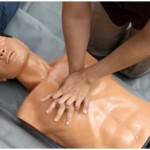 Health care professionals that work in the field of Audiology are called Audiologists. They have training in the anatomy, physiology and pathology of the auditory and vestibular system portions of the ears. Audiology is a branch that studies the hearing loss problems, balance difficulties, and other ear related disorders. An audiologist job description can be further detailed;
Health care professionals that work in the field of Audiology are called Audiologists. They have training in the anatomy, physiology and pathology of the auditory and vestibular system portions of the ears. Audiology is a branch that studies the hearing loss problems, balance difficulties, and other ear related disorders. An audiologist job description can be further detailed;
Preventing strategies
Audiologists are aiming to prevent these problems and disorders by doing research. They try to bring other testing strategies (hearing tests) for prevention closer to the patients so they can determine if their hearing is normal or they have hearing problems. This will also help them to determine the range of frequency that is affected and to what degree. These strategies develop and implement prevention of ear related problems and disorders.
Diagnosing and treating problems
Other than the preventing strategies, Audiologists are diagnosing and treating the ear related and balance disorders. Treating these problems and disorders include the use of hearing aids, cochlear implants, surgery, and other hearing and balance related assistive devices or advanced procedures.
Managing and monitoring the patients
Managing the patients and providing a good health care is essential since they can range from all ages. When a patient is diagnosed and treated, monitoring that patient’s disorder is also an important part of the Audiologist’s job. Depending on the program provided, the Audiologist should know sign language. He or she should also provide counseling and rehabilitation services for those patients and families that need them, and teach coping and special fitting for patients implementing personal safety programs. This type of care is different for every individual and they are provided with different treatments.
Requirements for the Audiologist education are different in different countries, but as the minimum standard they require a master degree in Audiology, or a Doctorate in Audiology (Au.D.), at the end of the studies there may be a standardized exam before the license is issued. Audiologists typically don’t need supervision and are working autonomous at hospitals or other health care facilities, as well as in a full time private practice.
Hearing loss can increase as people age, so the biggest demands in Audiology are from the aging population, but elderly people are not the only patients, children can also have hearing or balance disorders. There might be Audiologists that specialize in working with either group, elders or children.
The important qualities that Audiologist must have are:
- Excellent communication skills so they can take diagnosis from different types of people of all ages, to make good tests and include the patients in the treatments, as well as some rehabilitation programs.
- Have patience and compassion to work with patients step by step and include their families especially when it comes to young children.
- Good analytical skills, critical thinking for each patient individually and assigning appropriate treatments for the patients.
Salary
The median annual salary of an Audiologist in 2018 was around $75,920 which means $36.52 per hour. The projected employment for audiologist in the next 10 years is 34% from all the other occupations.






















